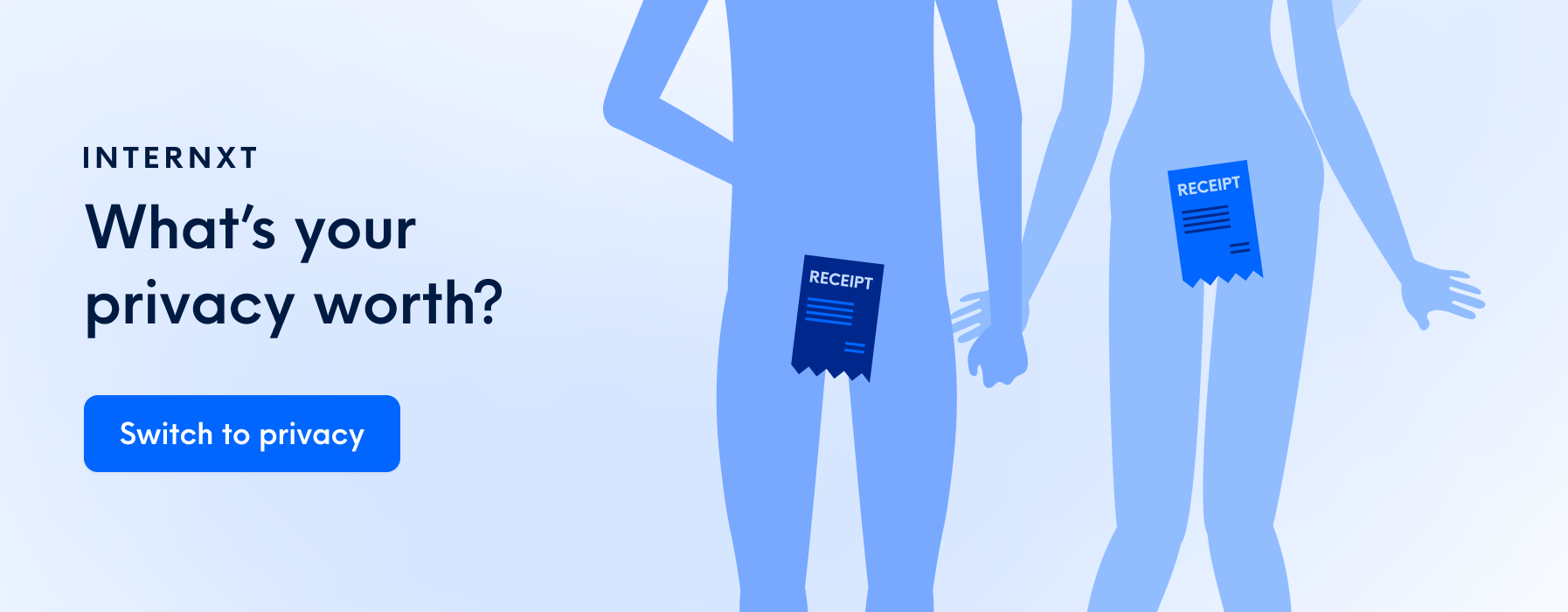Binge in Private: What Are the Most Secure Streaming Services?

Streaming platforms have become the go-to option for entertainment, especially in the wake of the pandemic. However, with an increase in the number of streaming services, the security concerns surrounding them have also escalated.
While you may be enjoying your favorite TV shows or movies, have you ever wondered whether your private data is safe from prying eyes?
We'll take a closer look at the most secure streaming services that provide peace of mind while you stream. We will also explore the features that make them stand out, including data encryption, anti-malware protection, and privacy policies.
Whether you're a cord-cutter or a movie buff, choosing a streaming platform with robust security measures is critical. With our semi-expert analysis and insights, you can stream in style, knowing that your personal information and sensitive data are well-protected.
So, let's dive in and discover which streaming services offer the best security features to keep you safe and secure.
What Are the Risks of Streaming on Unsecured Platforms?
The rise of streaming services has brought about a significant change in the way we consume entertainment. However, it has also increased the risks of cyberattacks and data breaches. Streaming on unsecured platforms may expose your personal information and sensitive data to hackers, cybercriminals, and other malicious actors.
These risks can include identity theft, financial fraud, and data breaches. Additionally, your online activity can be tracked, and your browsing history can be used for targeted advertising. It's wise to be aware of these risks and take appropriate measures to protect your privacy while streaming.
One of the most effective ways to do this is by choosing a secure streaming service from the get-go, one that has robust security features in place.

What Makes a Streaming Service Secure?
A secure streaming service is one that has implemented various security measures to protect its users' privacy and data. These measures can include data encryption, anti-malware protection, and robust privacy policies. Let's take a closer look at each of these features.
Data encryption
Encryption is the process of converting your data into a code that can only be deciphered with a specific key. A trustworthy, secure streaming service should use encryption to protect your personal information and sensitive data, making it virtually impossible for hackers to intercept and read your data.
Anti-malware protection
Malware is any software designed to harm your computer, steal your data, or spy on your online activity. A safe and secure streaming service should have anti-malware protection in place to prevent malware from infecting your device while you stream.
Privacy policies
A secure streaming service should have clear and comprehensive privacy policies that outline how the service collects, uses, and shares your data. The terms and conditions should also explain how you can control your data and provide options for opting out of data sharing. And yes, you should definitely read the whole thing!
By choosing a streaming service with advanced security features, you can stream in total peace of mind, knowing that your personal information and sensitive data are well-protected. In the next section, we'll compare the most secure streaming services - Netflix, Hulu, Amazon Prime, and Disney+.
Comparison of the Most Secure Streaming Services
Streaming services are expensive to run, and security is an added cost for an already expensive service. Unsurprisingly, the more secure streaming services are the big ones you've already heard of.
Netflix, Hulu, Amazon Prime, and Disney+ are some of the most popular (and most secure) OTT streaming services available today. They are giants. They all offer a vast library of movies and TV shows, but which one is the most secure? Let's find out.
Netflix
Netflix is one of the most popular streaming services, with over 200 million subscribers worldwide. It offers a vast list of movies and TV shows and has robust security features in place. Netflix uses 256-bit SSL encryption to protect your data, which is the same level of encryption used by banks and other financial institutions.
On top of that, Netflix has anti-malware protection in place to prevent malware from infecting your device while you stream. Netflix's privacy policy is also clear and comprehensive, outlining how the service collects, uses, and shares your data.
Hulu
Hulu is another popular streaming service that offers a huge library of movies and TV shows. It uses 128-bit AES encryption to protect your data, which is slightly less secure than Netflix's 256-bit SSL encryption.
Hulu also has anti-malware protection to prevent malware from infecting your device while you stream. Hulu's privacy policy is also clear and comprehensive, outlining how the service collects, uses, and shares your data for various purposes.
Amazon Prime
Amazon Prime is a popular streaming service that offers a medium-sized library of movies and TV shows, as well as free shipping on all Amazon purchases. It uses 256-bit SSL encryption to protect your data, the same level of encryption used by Netflix.
Additionally, Amazon Prime has anti-malware protection to prevent malware from infecting your device while you stream and shop. Amazon's privacy policy is also clear and comprehensive, outlining how the service collects, uses, and shares your data. Still, the company has a poor track record regarding privacy. Right, Alexa?
Disney+
Disney+ is a newer streaming service that offers a vast library of Disney movies and TV shows. It uses 128-bit SSL encryption to protect your data, which is the same as Hulu and, again, slightly less secure than Netflix's 256-bit SSL encryption.
Disney+ also has anti-malware protection in place to prevent malware and viruses from wreaking havoc on your device while you stream. Disney does an excellent job of filtering child from adult content, and their privacy policy is also clear and comprehensive, outlining how the service collects, uses, and shares your data.

Features That Make Each Service Stand Out in Terms of Security
Each streaming service has unique features that make it stand out in terms of security. Let's take a closer look at these features.
Netflix: Netflix's 256-bit SSL encryption is one of the most secure encryption methods available. Additionally, Netflix has a robust content filtering system that prevents users from accessing inappropriate content. Netflix also has a "Kids" section that only displays age-appropriate content.
Hulu: Hulu's anti-malware protection is one of the most effective in the industry. It has a real-time scanning system that detects and removes malware before it can infect your device. Additionally, Hulu has a "Live TV" section that allows users to stream live TV channels.
Amazon Prime: Amazon Prime's 256-bit SSL encryption is one of the most secure encryption methods used for video streaming. Additionally, Amazon Prime has an uncanny recommendation system that suggests movies and TV shows based on your viewing history. Amazon Prime also offers free shipping on Amazon purchases.
Disney+: Disney's nostalgic library of Disney movies and TV shows makes it a popular choice for families. Additionally, Disney+ has a "Kids'' section that only displays age-appropriate content. Disney+ also offers a "GroupWatch'' feature that allows users to watch movies and TV shows together in real time.
Pros and Cons of Each Secure Streaming Service
Netflix pros and cons
Pros: Robust security features, including 256-bit SSL encryption and anti-malware protection - Clear and comprehensive privacy policy - Likely the biggest library of movies and TV shows - Content filtering system for age-appropriate content
Cons: No live TV channels - More expensive than some other streaming services
Hulu pros and cons
Pros: Effective anti-malware protection - The best library TV shows and a solid list of movies - Live TV channels available - Clear and comprehensive privacy policy
Cons: Less secure encryption than other streaming services - Limited international content
Amazon Prime pros and cons
Pros: Robust security features, including 256-bit SSL encryption and anti-malware protection - Free shipping on Amazon purchases - Clear and comprehensive privacy policy
Cons: No live TV channels - More expensive than some other streaming services - Amazon is not known for privacy
Disney+ pros and cons
Pros: A vast library of Disney movies and TV shows - "Kids" section for age-appropriate content - "GroupWatch" feature for real-time watching with friends and family - Clear and comprehensive privacy policy
Cons: Less secure encryption than other services - Limited international content - Sparse non-Disney-owned content

Factors to Consider When Choosing a Secure Streaming Service
When choosing a secure streaming service, there are tons of things to consider, including security features, user experience, and availability of international content. Additionally, you'll want to consider factors such as price, compatibility with your devices, and customer support. So how to make sense of it all?
The first factor to think about when selecting a secure streaming service is encryption. A secure streaming service should use the latest encryption protocols to safeguard your data. This ensures that no one can intercept and steal your personal information or viewing habits.
Then ensure that the service uses two-factor authentication to add an extra layer of security to your account. This keeps hackers (and exes) out of your accounts.
Another biggie to consider is the service's privacy policy. A reputable streaming service should have a clear privacy policy that outlines how they collect and use your data. It should also detail how they handle your data in case of a breach. Make sure to read the privacy policy carefully and understand how your data will be used before signing up.
Another factor to consider is the service's content library. A good streaming service should have a wide range of content, including movies, TV shows, and music. Try to ensure that the service has the necessary licensing agreements in place to stream the content legally. This will prevent any legal issues and ensure that you have uninterrupted access to your favorite shows and movies.
Lastly, consider the user interface and ease of use of the streaming service. A good streaming service should be easy to navigate and use. It should also have features like parental controls and language settings that allow you to customize your viewing experience.
Alternative Secure Streaming Services
While few streaming services are as secure as the big household name, there are a lot of good, quirky services that can be trusted.
One such alternative is Kanopy, a free streaming service available through participating public libraries and universities that offers a vast collection of movies and documentaries. With its many educational documentaries, foreign films, classic cinema, and independent films, Kanopy provides an elevated viewing experience that differs from mainstream services.
More on "free" services later…
Another secure streaming service is Mubi, which is known for its curated selection of independent and foreign films. With its focus on quality over quantity, Mubi offers a refreshing alternative to the overwhelming amount of content available on mainstream streaming services.
For those looking for an even more niche streaming service, Shudder is the perfect option. Shudder is a horror-focused streaming service that offers a vast selection of horror movies and TV shows. With its disturbing content selection and focus on the horror genre, Shudder offers a specialized (and terrifying) viewing experience unmatched by mainstream services.
For anyone who loves anime, Crunchyroll is an excellent alternative to Netflix. It offers a vast selection of anime shows and movies, and you can access it for free with ads or pay for a premium subscription to remove them.
Finally, there's Criterion Channel, a streaming service that offers a vast collection of classic and contemporary films. With its focus on film preservation and restoration, Criterion Channel offers a high-class viewing experience that's perfect for film enthusiasts.
Beware of "free" streaming services like some mentioned above and others like TubiTV and Crackle. Though many services are free but ad-supported, you may have to sit through a few commercials often targeted to your watch habits.
While being free doesn't exactly mean they're unsafe, they likely use data in some way or another to recoup operating costs.

Which Secure Streaming Service Is Best for You?
In conclusion, choosing a secure streaming service is essential to protect your privacy and data while vegging out and binging movies and TV shows. Netflix, Hulu, Amazon Prime, and Disney+ are all great options, each with unique features and advantages.
If you're looking for a streaming service with robust security features, we recommend Netflix. If you're looking for a streaming service with a vast library of TV content, we recommend Hulu. And if you have kids, Disney+ is the way to go.
Ultimately, the best streaming service for you will depend on your individual needs, tastes, and preferences.
By the way, if you want to become a streamer or YouTuber yourself, the first thing you should consider is choosing your niche, creating a content plan, and picking the right equipment, like a good camera for streaming.
Considering the factors we've explored in this round-up, you can now make a more informed decision and stream with confidence, knowing that your personal information and sensitive data are well-protected.

